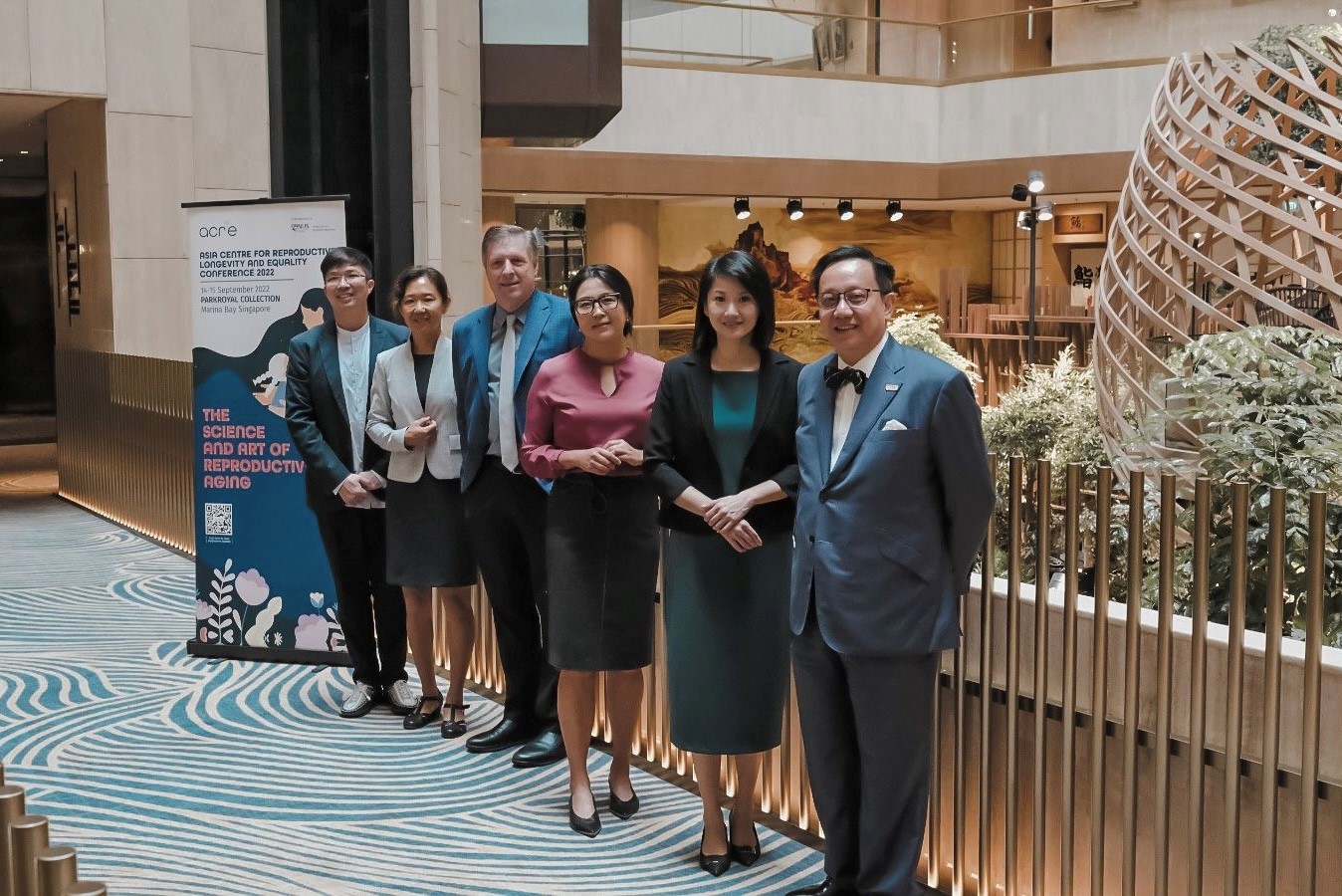NUS Medicine Leads Conversation on Women’s Reproductive Longevity and Equality at Inaugural Conference
Published: 19 Sep 2022

Photo credit: NUS Yong Loo Lin School of Medicine
As the world faces a rapidly ageing population and declining fertility, there is a pressing need for us to focus more attention and resources towards addressing the issue of women’s reproductive health and longevity.
In line with Singapore’s progressive move to ensure female equality in society and drive greater support for women at home and in the workplace, the NUS Bia-Echo Asia Centre for Reproductive Longevity & Equality (ACRLE), a research centre under the Yong Loo Lin School of Medicine, National University of Singapore (NUS Medicine), held its inaugural conference on 14 and 15 September 2022, focusing on an interdisciplinary approach to understand the science and art of reproductive longevity and equality.
“Ageing is the main risk factor for many chronic diseases. In women, the first organs to age are her ovaries, and ovarian ageing in women results in reduced reproductive lifespan and healthspan which will lead to infertility, as well as an increase in chronic diseases such as cardiometabolic diseases, neurocognitive decline, osteoporosis, and frailty,” said Dr Huang Zhongwei, Deputy Director of NUS ACRLE, and a fertility specialist and consultant with the Department of Obstetrics and Gynaecology at the National University Hospital.
The conference examined issues and the way forward in the advancement of women’s reproductive and general health and equality. Both local and international speakers from various universities and faculties delved into topics such as the science of reproductive biology and ageing, translational and population studies on women’s reproductive health problems across lifespan ranging from fertility, gynaecological problems and menopause, advocacy work for women’s health education, reproductive equality and rights.
Attended by Guest-of-Honour, Ms Sun Xueling, Minister of State, Ministry of Home Affairs, Ministry of Social and Family Development, the conference saw attendees across various disciplines, including scientists, clinicians, epidemiologists, social scientists and women’s advocates.
“We want to empower women with choices to pursue both family and career aspirations, whether it is juggling work and caregiving or starting a family. We will need a whole-of-society effort, by the Government, employers, and the community to better support women achieve their endeavours,” said Ms Sun Xueling.
One of the conference highlights included the Panel Discussion on Women’s Health and Equality, which featured medical and social science experts including Associate Professor Shefaly Shorey from the Alice Lee Centre for Nursing Studies (NUS Nursing), Dr Tan Poh Lin, Assistant Professor at the Lee Kuan Yew School of Public Policy and Dr Yeung Wei-Jun, Jean, ProvostChair Professor of NUS Medicine and the Department of Sociology at the Faculty of Arts and Social Sciences. The panel discussion held on 14 September 2022, 2.00pm, uncovered the bio-psycho-social factors affecting women in their reproductive choices, and life decisions.
In conjunction with Polycystic Ovarian Syndrome (PCOS) awareness month in September, a dedicated session was held on 15 September 2022 to shine light on PCOS in Asian women and how it affects their reproductive and general health as well as their life-course living with PCOS.
“Women drive the future of the world. Human capital is the world’s most precious asset and women play one of the most important, if not the most important role in society by being the bearers of the next generation. We have a duty to ensure that the emotional, physical and reproductive health of women are kept in an optimal state to ensure our future. With the cross pollination of ideas, concerted efforts and active involvement from all stakeholders, the goal of pushing the frontiers of reproductive ageing research, clinical and epidemiological studies, as well as the health education and advocacy of reproductive equality, is attainable, and we are confident that we can bring about change to create a positive impact on women’s life, now and in the future,” said Professor Chong Yap Seng, Dean of NUS Medicine.
Read more in the press release here.

